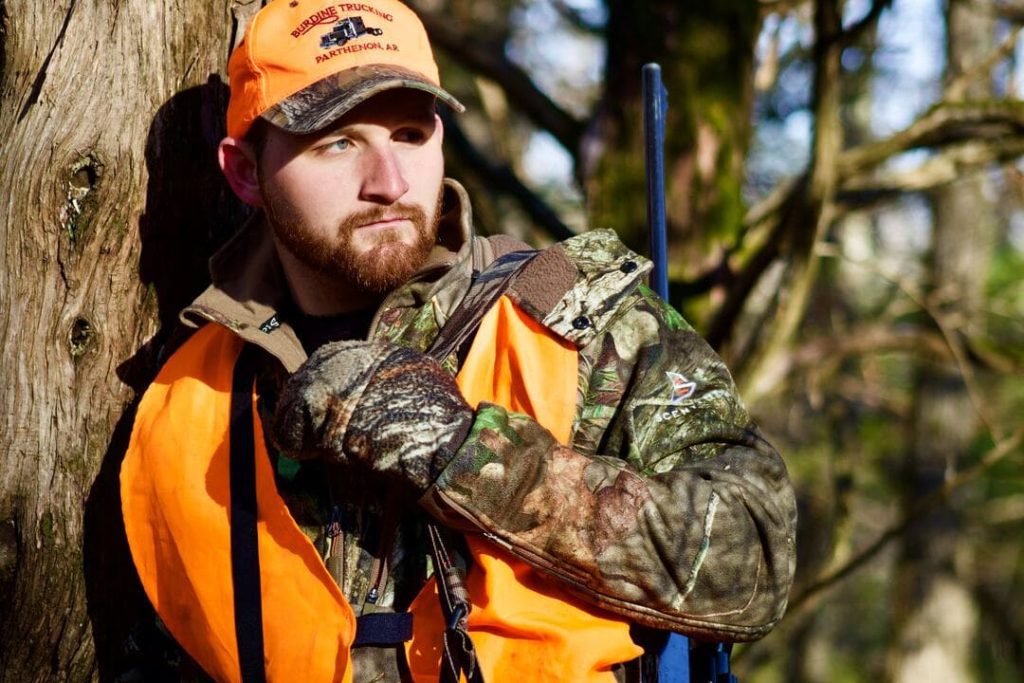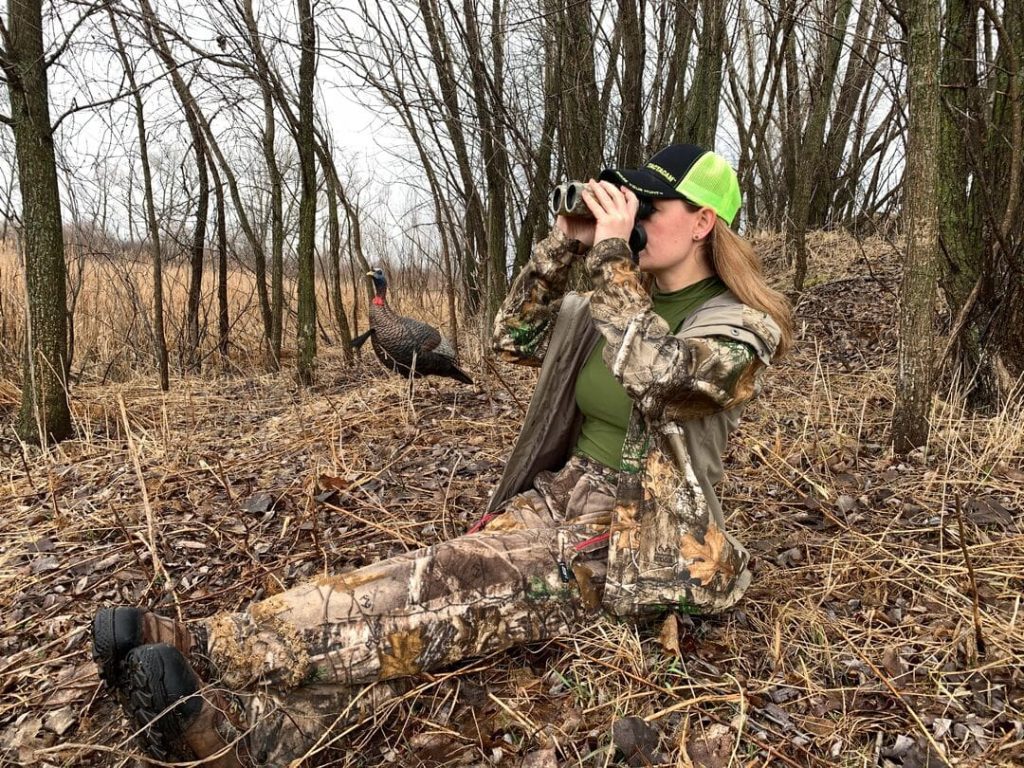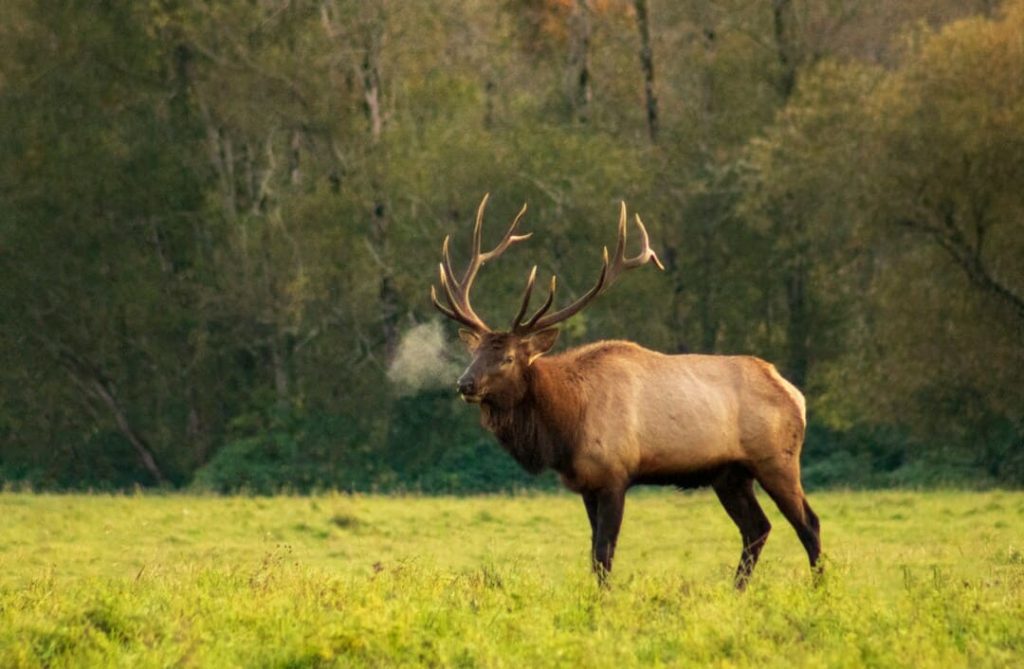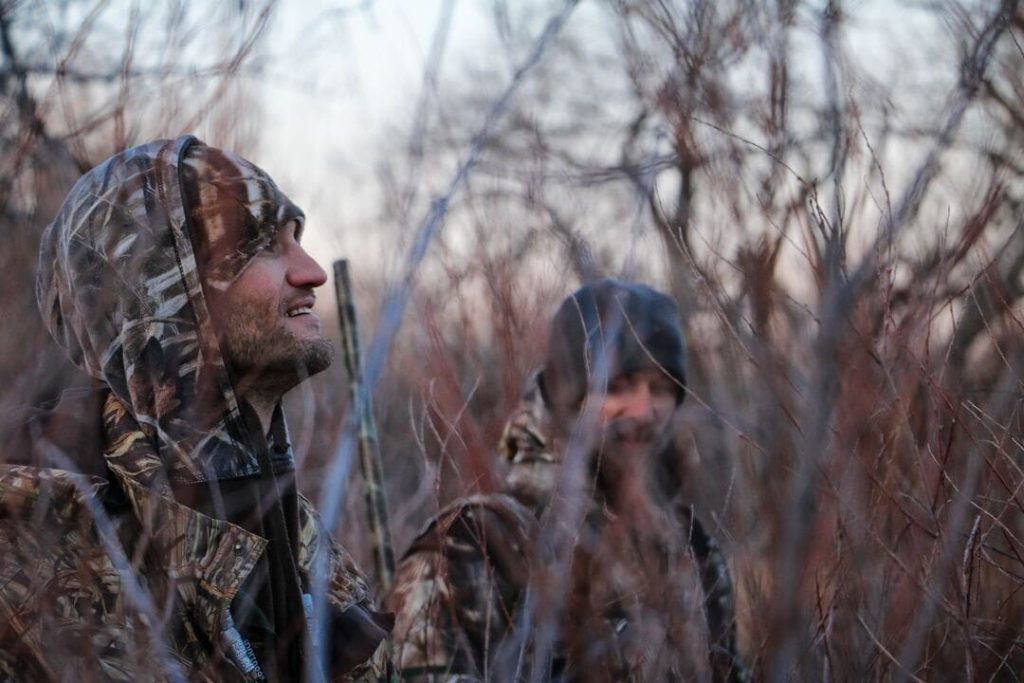

If you want to learn how to implement these strategies to get the VA benefits you deserve, click here to speak with a VA claim expert for free.
This post will cover the non-resident disabled veteran hunting license by state. We’ll look at the guidelines, prices, and restrictions for non-residents planning to hunt out of state.
We’ll also include official links for each state so you quickly navigate to the official information page on hunting licenses, permits, and stamps for the state you’re interested in.
Let’s get started!
Table of Contents
You DESERVE a HIGHER VA rating.
We CAN HELP.
Take advantage of a FREE VA Claim Discovery Call with an experienced Team Member. Learn what you’ve been missing so you can FINALLY get the disability rating and compensation you’ve earned for your service.
Some states offer special hunting license rates for disabled veterans, even if you aren’t a resident. In other states, non-residents must pay a fee to hunt. Find the state you’re interested in below (alphabetically) to see which fees apply.
Non-resident 100% service-connected veterans can obtain a special hunting license for $2 plus the applicable issuance fee in Alabama.
In addition, a special hunting license is available to 50% service-connected veterans at half the usual cost plus the appliance issuance fee.
Eligible veterans can also purchase an annual resident nighttime feral swine and coyote hunting license by paying the issuance fee, as adjusted; they are exempt from paying the license fee.
You must present your disability certification from the USDVA when applying.
For license information and an application, contact Outdoor Alabama at 1-888-848-6887.
There are no special rates for non-resident disabled veterans in Alaska regarding hunting licenses.
However, they do offer non-resident hunting licenses at a rate of $160 per year. Additional non-resident fees that may apply include:
In Arizona, there are no special rates for non-resident disabled veterans, so you must pay the annual hunting license fee of $160.

Arkansas only offers discounted rates for resident disabled veterans, but you can buy hunting licenses at the following rates:
California allows non-resident honorably discharged disabled veterans with a 50% or greater service-connected disability the opportunity to apply for a hunting license.
Once you prequalify for your first disabled veteran reduced hunting fee license, you can purchase a disabled veteran license anywhere licenses are sold.
Prices for California non-resident disabled veterans hunting licenses:
Colorado only provides special rates to resident disabled veterans, and therefore, non-residents are subject to the following fees:
In Connecticut, non-resident disabled veterans must apply for and obtain a hunting license to hunt in the state legally.
The following fees apply to non-residents hunting in Connecticut:
In Delaware, veterans with at least a 60% service-connected disability rating are eligible for a veteran license exemption.
If you qualify, you must complete the Veterans with Disabilities Exempt Application and submit it to the Division of Fish and Wildlife.
Hunting is prohibited in the District of Columbia (D.C.).
Non-residents of Florida must apply for and obtain a hunting license to hunt in the state legally.
There are no discounted rates for non-resident disabled veterans, so the following rates apply:
The Georgia Department of Veterans Service permits non-resident disabled veterans with a permanent and total disability rating for a physical or mental impairment a 3-year disability sportsman’s license at a steep discount from the regular license cost.
While Hawaii doesn’t offer a hunting license specifically for veterans, you can apply for a non-resident license.
Non-resident annual hunting license fees are available for $105, with a reduced fee of $10 for
Additional game bird stamps are available for a fee of $10.
In Idaho, non-resident disabled American veterans may be eligible for reduced fees for licenses and tags.
The following fees will apply:
You must provide a copy of your official VA Disability Percentage Rating letter that verifies you have a service-connected disability rating of 40% or greater.

In Illinois, disabled veterans who receive a 10% or greater service-connected compensation or total disability pension benefits aren’t required to have a hunting license.
Indiana permits non-residents to hunt in the state, although there is no discounted rate for disabled veterans.
The following fees apply:
Note: If you have a disability that prevents you from being able to hunt wild animals under regular hunting regulations, you may request a special permit from the Indiana Department of Natural Resources.
In Iowa, eligible non-resident disabled veterans may apply for a severely disabled deer hunting license, allowing them to hunt during the Disabled Hunter Season.
All other non-residents must pay the following fees:
To hunt in Iowa, non-residents must purchase hunting and a habitat fee. In addition, if you plan to hunt deer, you will also need your tags, sold as an any-sex tag and antlerless tag combination ($498.00)
The total for a deer hunting application will be $644.00 plus applicable fees.
For turkey, you will need a hunting license, habitat fee, and turkey tag ($119.00) for your season/zone of interest. The total for applying for a turkey tag will be $265.00 plus applicable fees.
Kansas doesn’t offer discounted rates for non-resident disabled veterans; however, you may apply for an annual hunting license.
Non-resident hunting fee:
You can submit your application by mail or online.
Kentucky doesn’t offer non-resident disabled veterans a special rate; however, you can still hunt in the state pending you have applied and received the appropriate licensure.
The following rates apply for non-residents of Kentucky:
Louisiana allows non-residents awarded a Purple Heart to be eligible for a hunting license at the resident rate.
For veterans with a permanent service-connected disability classification of 50% or more, the Louisiana Wildlife and Fisheries Foundation covers the $4 fee for this license. This included basic and saltwater fishing licenses, basic deer, waterfowl, and turkey hunting licenses, and the WMA access permit.
It doesn’t include the federal duck stamp.
Maine permits disabled veterans with a service-connected disability evaluated at 50% or more to obtain a complimentary hunting license.
The complimentary license includes all necessary permits and other permission, and upon meeting the requirements, a guide’s license.
Maryland doesn’t have a discounted rate for non-resident disabled veterans; however, you can still purchase a hunting license for $160 if you are between the ages of 16 and 64.
In addition, there is a special senior non-resident rate of $65.
Massachusetts doesn’t have a specific non-resident disabled veteran rate; however, they offer a free annual license to people with paraplegia.
Annual fees for other non-residents are as follows:
Michigan doesn’t offer a special rate for non-resident disabled veterans; however, you can still purchase a non-resident base license for $151.
All hunters must obtain a base license, which permits the hunting of small game, and they can purchase additional hunting licenses, including the following:
Minnesota doesn’t offer special rates for non-resident disabled veterans; however, you can still apply for a hunting license.
The following fees apply to non-residents of Minnesota:
You can find a complete list of non-resident fees depending on the animal on the Minnesota Department of Natural Resources website.
Additional licenses and permits are required for hunting the following:
Mississippi only offers disabled veteran rates to residents, and the following rates apply to non-residents:
Additional permits and stamps are required for hunting:
The Missouri Department of Conservation has several permit exceptions and low-cost permits for disabled veterans who qualify for one of the following:
In Montana, there is no special rate for non-resident disabled veterans, so you must pay the non-resident base annual hunting license fee of $15.
You must also apply for special permits and licenses through drawings for hunting:
In addition, anyone, resident or non-resident, can purchase or draw a hunting license, tag, or permit and donate them to a disabled veteran. However, the donor can’t choose the individual or organization the donation will go to.
Participating veterans must be a Purple Heart recipient and have a disability rating of 70% or greater.
Only resident disabled veterans of Nebraska are eligible for special rates. All others must pay the following hunting fees:
Permits are required for hunting the following:
In addition, you must obtain additional stamps for hunting waterfowl and upland birds.
Reduced rates for disabled veterans in Nevada are limited to residents only. All others must pay the following annual rates:
The following rates apply for non-resident disabled veterans in New Hampshire:
New Jersey doesn’t offer a discounted rate for non-resident disabled veterans; however, hunting licenses are still available at the following rates:
There is no reduced rate for non-resident disabled veterans in New Mexico, and the following rates apply:
In New York, there are no discounted rates for non-resident disabled veterans, and therefore, they must pay the annual hunting license fee of $100.
North Carolina doesn’t offer discounted rates to non-resident disabled veterans, and the following rates apply:
North Dakota doesn’t offer specific rates for non-resident disabled veterans, so the following rates will apply:
Special rates for disabled veterans are only available to Ohio residents, and therefore, non-residents must pay the following fees:
In Oklahoma, there is no discounted rate for non-resident disabled veterans, so the following rates will apply:
Oregon only has discounted hunting license rates for disabled veterans if they are state residents.
Non-residents must pay an annual hunting license fee of $172.
Disabled veteran rates are only available to Pennsylvania residents; however, you can still purchase licenses at the following rates:
Rhode Island offers free hunting licenses to veterans with a 100% disability rating from the VA. All other veterans are subject to the non-resident fees below:
South Carolina doesn’t have a unique program for non-resident disabled veterans, and therefore, regular rates apply.
The following rates apply to non-residents of South Carolina:
South Dakota only provides discounted rates to resident disabled veterans; the following fees apply to non-residents:

Tennessee only offers resident disabled veterans a discounted rate, so the following rates apply to non-residents:
Texas permits non-resident disabled veterans, consisting of the loss of use of a foot or leg, or with a service-connected disability evaluated at 50% or more to obtain a complimentary hunting license.
For all other non-residents, the following fees apply:
Utah doesn’t offer discounted rates for non-resident disabled veterans, so the following rates will apply:
Non-residents of Vermont with a 60% service-connected disability may be eligible to receive a free one-year hunting license if they reside in a state that provides reciprocal privileges to Vermont residents.
Virginia offers non-resident disabled veterans hunting licenses if you are totally and permanently (P&T) disabled or have a VA rating of 70% or higher.
The following are the annual fees based on your rating:
P&T: $28.50
70% or higher: $56.00
You can find the application online and return it with proper payment to:
Department of Wildlife Resources
Attention: License Sales, Veteran Annual License
Henrico, VA 23228-9700
You must also include proof of your disability with your application.
Non-resident disabled veterans are eligible for reduced tags in Washington if they meet either of the following criteria:
Only West Virginia resident disabled veterans aren’t required to have a hunting license; all others must.
However, the state allows eligible non-residents with disabilities to apply for the Class Q or Class QQ special hunting permits, which offer special privileges to disabled hunters.
The following fees apply for non-residents of West Virginia:
Additional stamps and permits may be required depending on the type of animal you hunt.
In Wisconsin, non-resident Purple Heart Medal recipients can receive resident rates for a hunting license.
Eligible veterans must provide appropriate documentation at a DNR Service Center and, once approved, a reduced rate license at any of the over 1,000 licensing agents or online.

Wyoming only offers discounted hunting licenses to resident disabled veterans.
Non-resident disabled veterans are subject to specific fees, depending on the type of animal. In addition, there is a $15 non-resident application fee.
In addition to this non-resident disabled veteran hunting license by state guide, be sure to check out our complete list of Veteran Benefits by State, letting you know what you are entitled to depending on where you live.
In each State Veteran Benefits blog, you’ll also find hunting and fishing license information for resident veterans!

We hope you’ve found this information helpful. We pride ourselves on providing relevant and up-to-date information to the veteran community.
Most veterans are underrated for their disabilities and, therefore, not getting their due compensation. At VA Claims Insider, we help you understand and take control of the claims process, so you can get the back pain VA rating and compensation you’re owed by law.
Our process takes the guesswork out of filing a VA disability claim and supports you every step of the way in building a fully-developed claim (FDC)—so you can increase your rating FAST!
If you’ve filed your VA disability claim and have been denied or have received a low rating—or you’re unsure how to get started—reach out to us! Take advantage of a FREE VA Claim Discovery Call. Learn what you’ve been missing—so you can FINALLY get the disability rating and compensation YOU DESERVE!

September 9, 2024
Securing a costochondritis VA rating could finally put the compensation you rightfully deserve in your pocket. But how do you get there? If you’re a veteran struggling with. continue reading

The Physical Evaluation Board (PEB) is a pivotal step in the military's Integrated Disability Evaluation System (IDES), responsible for determining whether a service member can continue serving. continue reading
Dear Veteran,
Here’s the brutal truth about VA disability claims:
According to our data, 8/10 (80%) of veterans reading this message right now are underrated by the VA…
This means you do NOT currently have the VA disability rating and compensation YOU deserve, and you could be missing out on thousands of dollars of tax-free compensation and benefits each month.
As a fellow disabled Veteran this is shameful and I’m on a mission to change it.
Brian Reese here, Air Force service-disabled Veteran and Founder @ VA Claims Insider.
Since 2016, VA Claims Insider has helped thousands of Veterans just like you get the VA rating and compensation they deserve in less time.
If accepted into our ELITE membership program, you’ll get free up-front access and permission to use $13,119 worth of proprietary VA claim resources, including access to our network of independent medical professionals for medical examinations, disability evaluations, and credible Medical Nexus Letters, which could help you get a HIGHER VA rating in LESS time.
It’s FREE to get started, so click “Go Elite Now” below to complete our 3-step intake process.
If you’re stuck, frustrated, underrated, and currently rated between 0%-90%, VA Claims Insider Elite is for you!
Click “Go Elite Now” below to get started today and a member of our team will be in touch within minutes.